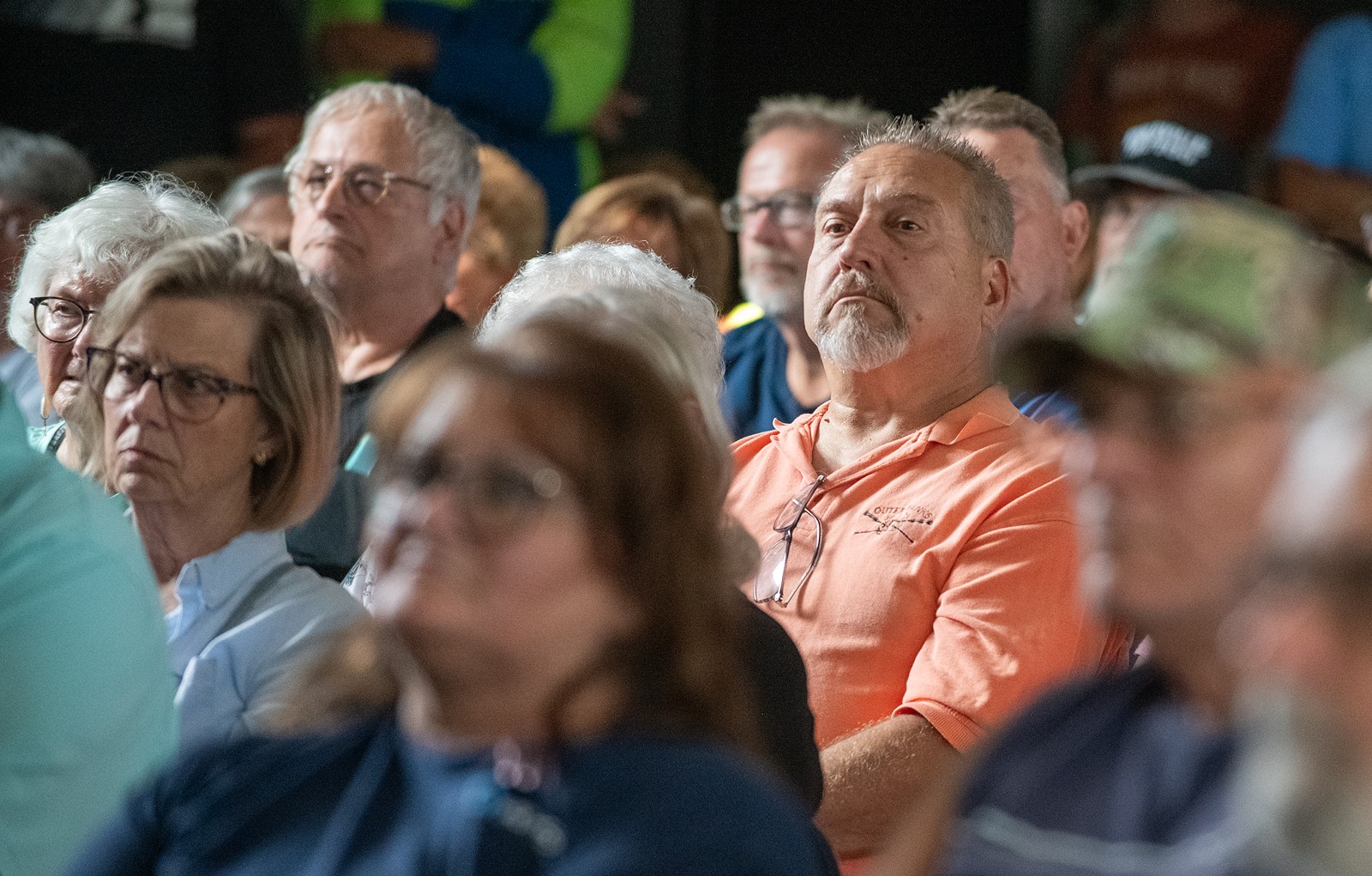

A cordial crowd of about 200 people voiced concerns and asked questions to Hobart Mayor Josh Huddlestun Monday about the impact data centers would have on nearby residential neighborhoods.
The city has two pending requests from developers proposing data centers at 61st Avenue and Colorado Street.
Data center growth, fueled by the rise of artificial intelligence, streaming and social media, is touching communities across the country as concerns mount about power and water usage.
Housed in typically nondescript brick buildings, they contain rows and rows of servers that enable the daily “click” activities people rely on for work, fun and storage of medical and financial data.
Huddlestun provided a lengthy background lesson on what he’s learned about data centers, including a recent visit he made with city council members to Loudoun County, Virginia, known as the U.S. data center capital, with about 200 centers in use.
The development proposals come at a time when cities like Hobart and school districts are struggling to pay employees and continue services after state lawmakers slashed property taxes earlier this year.
“If we don’t do something, we’ll be laying off police and fire,” Huddlestun said of the property tax reform measure known as Senate Bill 1. Hobart could lose more than $3 million in 2028. He said the city is already having trouble staffing a fire station.
Some residents who live near the proposed development area weren’t convinced of the doom scenario. A handful of residents wore red T-shirts with “61st Avenue No Data Center” on them.
“The environmental concerns are still unknown,” said Carla Houck. “We didn’t know about lead or asbestos… Put it somewhere where we can mitigate those concerns.”
Huddlestun said data centers are coming to Northwest Indiana because of its proximity to Chicago and the availability of high-tension electrical power lines and water. He said the 61st Avenue site has high-tension power lines nearby.
He said the proposed data centers mesh with the city’s master plan requirements.
“I can play offense or I can play defense… I can try to have something with the least impact to residents, and I live in this community as well. I would never purposely lead us down a path that I feel would be detrimental to our community,” Huddlestun said.
He said it’s difficult to reach a consensus on new developments since residents who live nearby, whether it’s a senior living complex, a school, or an orchard, often voice objections.
“Business parks work next to residential; Hobart is apparently the exclusion to that. I go to other places and they work,” he said, showing a slide of a large Crown Point subdivision adjacent to a warehouse.
“If done carefully, you can make it work,” Huddlestun said.
Jennifer Williams, who lives in Amber Creek at 61st and Colorado, still thinks it’s a bad idea.
“61st Avenue has a legacy. How will a data center or anything else draw anyone down to our lakefront?” she asked.
“Why don’t you come to us and ask what we want? I’m from the outside and I can’t wait to get out,” she said.
Resident Helen Engstrom thanked Huddlestun for the meeting, saying she didn’t object to a data center in the city, but stressed 61st Avenue has become a residential area. She also mentioned neighboring communities, including Valparaiso and Chesterton, which rejected data center development.
“What do they know that we don’t?” she asked. “I just think we have to keep that area the way it is.”
Terry Butler, a former Hobart School Board member who lives near the proposal in Deep River Estates, said he’s not sure about the location for the data center, but he does know Hobart schools are scrambling to make ends meet.
“Senate Bill 1 is a back breaker,” he said. The school board has agreed to open its enrollment beyond its borders and has renewed its property tax referendum to keep its buses afloat. “They’re still running short.”
Because it’s located in a tax increment finance zone, the school district wouldn’t gain tax money from it, Huddlestun said. He didn’t know how much the infusion of taxes would mean to the city, estimating it at $2 to $5 million.
Neither data center has gained city approval yet, although the City Council did approve the rezone of a 168-acre parcel proposed by Hobart Devco LLC. It plans to build a six-building complex for its servers.
Hobart Devco said it would build a landscape berm and fence to shield the data center from its neighbors.
While the rezone gained approval earlier this year, the city still needs to approve site plans, which have not been submitted yet, according to Huddlestun.
Meanwhile, Wylie Capital, a real estate developer that builds data centers, is seeking a rezone for 400 acres on 61st Avenue, east of Colorado and north of 69th Avenue.
The rezone petition, from R-3 to M-1, will be heard at the Plan Commission’s Aug. 7 meeting.
Carole Carlson is a freelance reporter for the Post-Tribune.


 PREVIOUS ARTICLE
PREVIOUS ARTICLE
